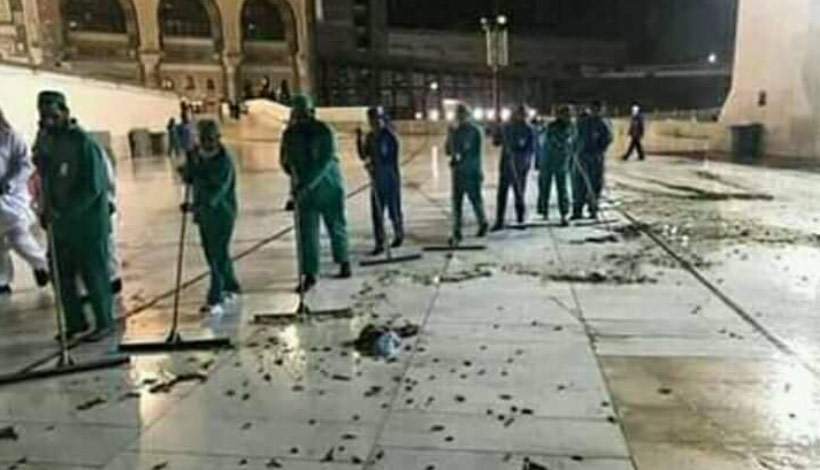BY TOM O’CONNOR
The holiest site in Islam, the Grand Mosque in Saudia Arabia’s sacred city of Mecca, has been bombarded by a swarm of insects, and local authorities are struggling to clean up the mess.
Droves of insects identified as black grasshoppers descended on Mecca earlier this week, bugging worshippers at the Grand Mosque. Images of the locusts buzzing around light fixtures, clinging to marble surfaces and even blanketing praying pilgrims spread throughout social media, prompting the city to take action.
You may be interested
The Holy Mecca Municipality issued a statement Monday responding to the swarm of so-called “night cockroaches,” saying it had dispatched “22 teams consisting of 138 individuals and 111 devices” to combat the pests.
شوف مكه يابو البراء مدري هو جراد او غيره pic.twitter.com/eTkg8WH39i
— ابومشاري.رفحاء+الدمام (@zHj2kzX5BDAbub7) January 8, 2019
The teams specifically targeted “breeding and gathering sites” such as sanitation areas and water drains. The municipality said it was “harnessing all the efforts, capabilities and possibilities available to the eliminate these insects in the interest of the safety of guests of the sacred house of God.”
While a major nuisance, locusts are not known to carry diseases transmittable to humans, nor do they bite or sting. Hazal bin Mohammed al-Zafar, head of the Plant Protection Department at King Saud University’s Faculty of Food and Agricultural Sciences, told the local Sabq newspaper Monday that the “field cockroaches” were of the Gryllidae family and more closely related to grasshoppers and crickets than domestic cockroaches.
Zafar told the outlet that locals should refrain from eating or selling the insects, while stressing that they “do not transmit diseases” and that swarming was a natural phenomenon likely related to recent rains. He estimated that 30,000 locusts had descended on Mecca, noting that larger swarms could reach into the hundreds of thousands.
Still, social media users could not help but point to what they felt were religious connotations of such an event. The motif of locust swarms as a form of divine punishment features in all the Abrahamic traditions, which include Judaism, Christianity and Islam.
Quran verse 7:133, explaining God’s plague against the people of Egypt, reads: “Then We afflicted them with a great flood and locusts, and the lice, and the frogs, and the blood. All these were distinct signs and yet they remained haughty. They were a wicked people.” According to the Quran, the plagues convinced the Egyptian pharaoh to release the Israelites, allowing the prophet Moses, known as Musa, to lead them into to the promised land.
Millions of Muslims travel to Mecca every year for the Hajj, an annual pilgrimage required to be performed at least once a lifetime as one of the five pillars of Islam, and the Umrah, a pilgrimage to Mecca that can be undertaken at any time of the year.
This article originally appeared on newsweek.com.














